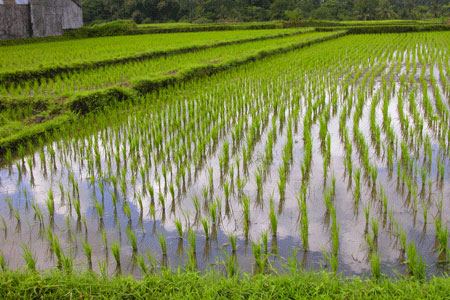A 98 million-shilling rice huller belonging to Latyeng Farmers’ Group in Gulu district has remained unused for more than two years, due to lack of power to run it.
The machine which has the capacity to hull 300 bags of rice daily was donated by the National Agriculture Advisory Services (NAADS) in 2017, to the farmers’ group in Bungatira Sub County, to help them sort, hull and pack their rice.
Ben Ocan the Chairperson of Latyeng Farmers’ Group, told theCooperator that the machine has not worked a single day, from its installation to date, because of lack of power.
“Since the machine was installed, we have never used it even once. It was installed and farmers were also trained on how to use it, but it is just a white elephant,” Ocan said.
Ocan says the machine remains idle because the farmers’ group does not have the Shs 40 million needed to install a three-phase transformer needed to run it, or buy a generator which he believes requires at least Shs100 million.
“We have been struggling to get power for this machine for the past two years. There is no electricity in the area, but when the machine was brought to us, NAADS promised to install a transformer but up to now there is nothing,” Ocan said.
As a result, Ocan says the farmers are spending huge sums of money to transport and hull their rice at a rice mill 10 kilometres away.
“We hull about 6000 tonnes of rice each season at a cost of Shs 200 per kilogramme. We had planned that with our machine, we would charge only Shs. 150 per kilogramme; this means our farmers would save Shs 50,000 from hulling a tonne of rice, which is a lot of money in business.”
“I alone took 360 bags of rice to that rice milling machine last season, let alone that for the society and other farmers. So, this machine could have also employed a number of people in our area, but without power, it is like a toy,” he added.
Ocan reveals that officials from Operation Wealth Creation and the Rural Electrification Authority (REA) surveyed the area two years ago and promised to connect electricity at the site, but the promise is yet to be honoured.
Instead, he says, a team from the NAADS secretariat visited them last month and recommended that Gulu district leaders take over the issue of powering the machines so as not to continue failing farmers.
“I was told to write a letter to REA through the [Chief Administrative Officer] CAO of Gulu, so that the matter is addressed in a decentralized manner,” Ocan said.
District responds
Gloria Aloyo, the Gulu District Communications Officer, says that the machine remains idle because when the farmers’ group applied for it in 2016, they did not did not specify that they needed other components for its operation.
“According to NAADS, if a farmers’ group asks for an input, they procure that specific input. They don’t ask if you don’t have electricity or whether you are going to use biogas to power it. So, indeed when the farmers’ group asked for that machine in 2016, NAADS procured it for them although it uses electricity to operate,” Aloyo said.
However, Aloyo revealed that the farmers’ group’s oversight, the district production department wrote a proposal to NAADS, which led to the construction of a house for the machine.
“The only gap left now is for the farmers’ group to write through their sub county leaders and the CAO to REA making their request for power, so that even if the power wasn’t going to reach their locale, it is included in the program,” Aloyo said.
Vicky Ocan, the Secretary of the farmers’ group, says that once the rice huller starts working, the group will be able to pack and label their rice and gradually grow a brand name and reputation.
Latyeng Farmers’ Group which started in 2006 with 30 members has steadily grown over the years to include 300 members, growing about 700 acres of rice every season.
